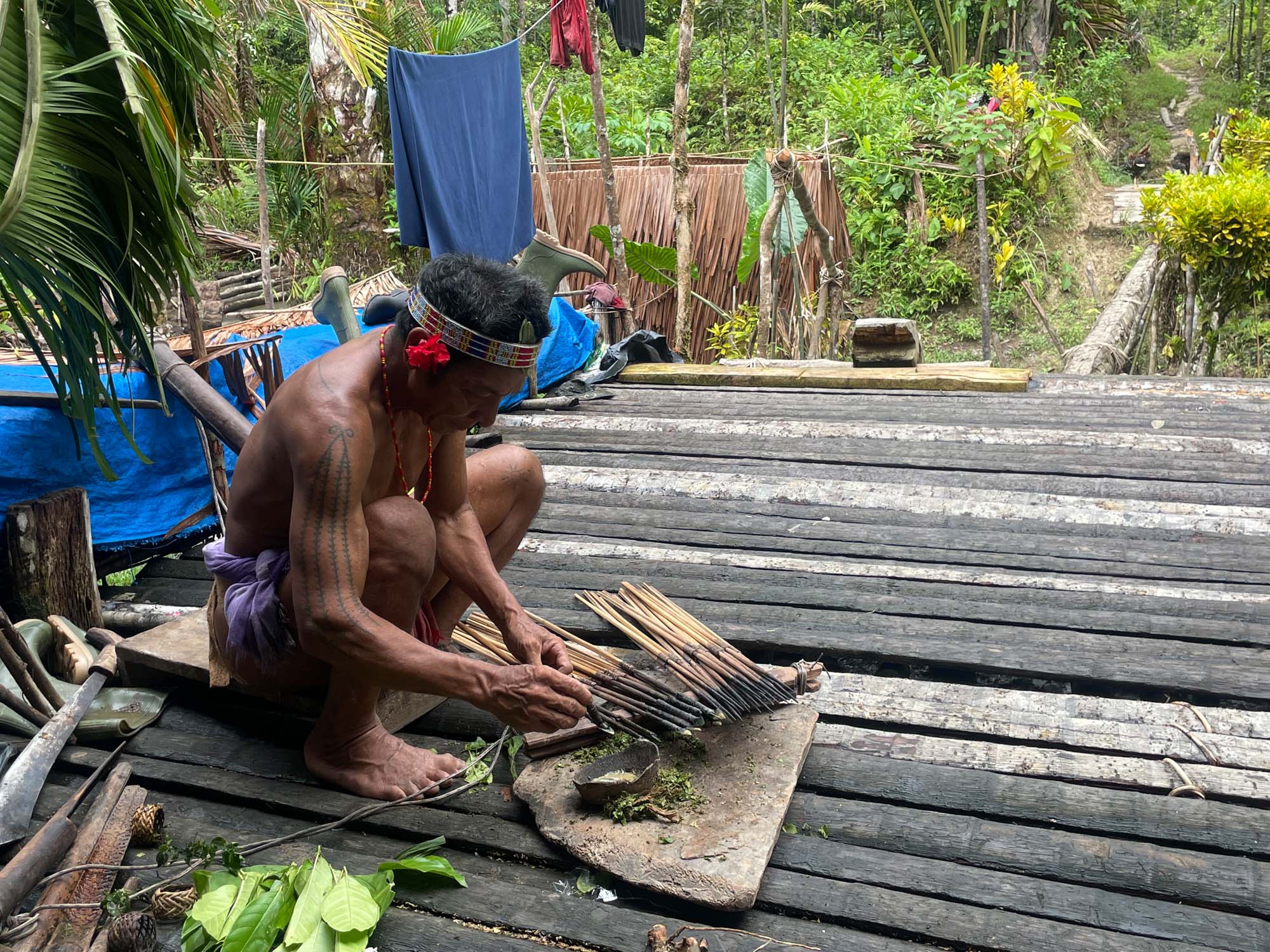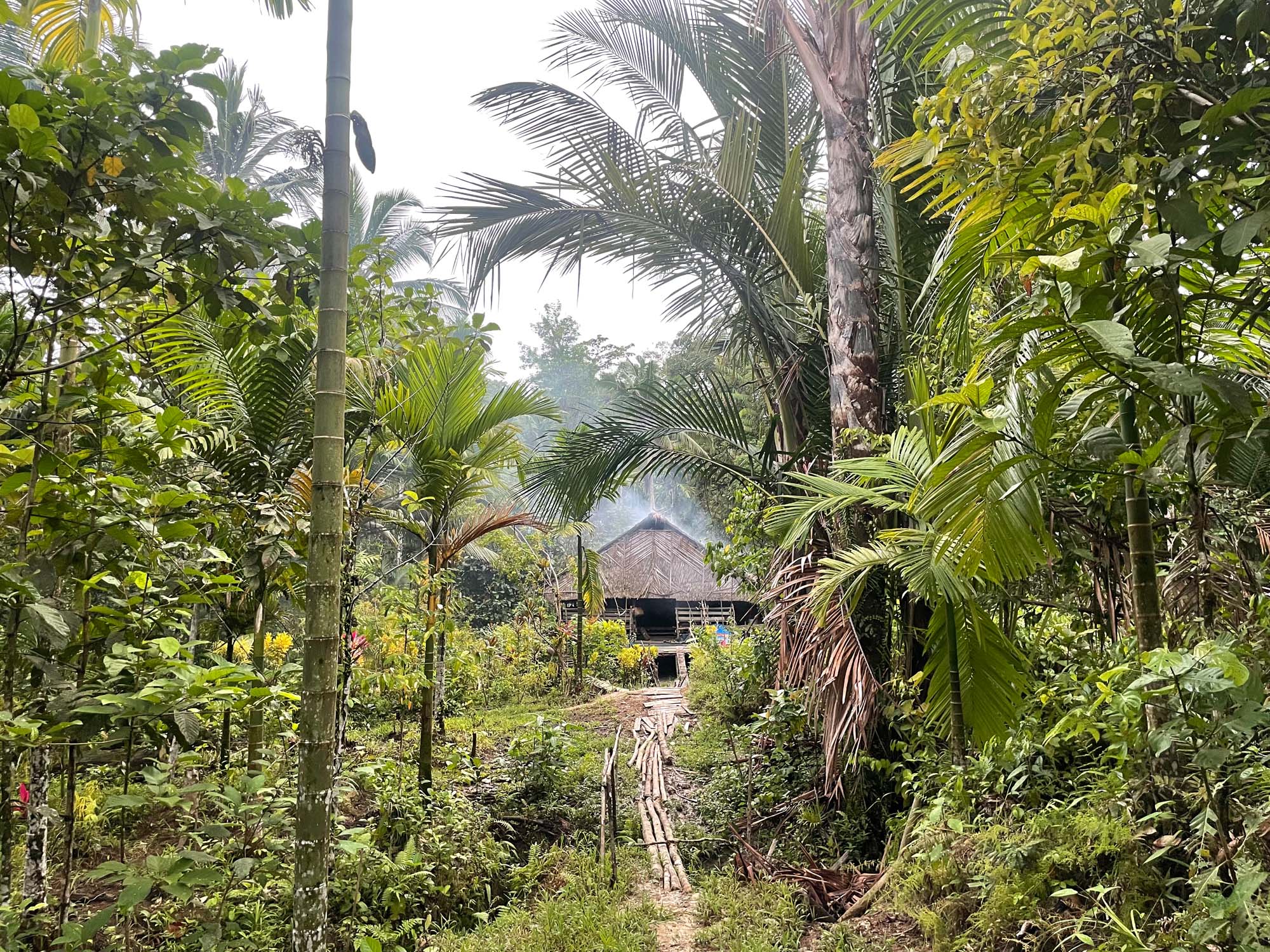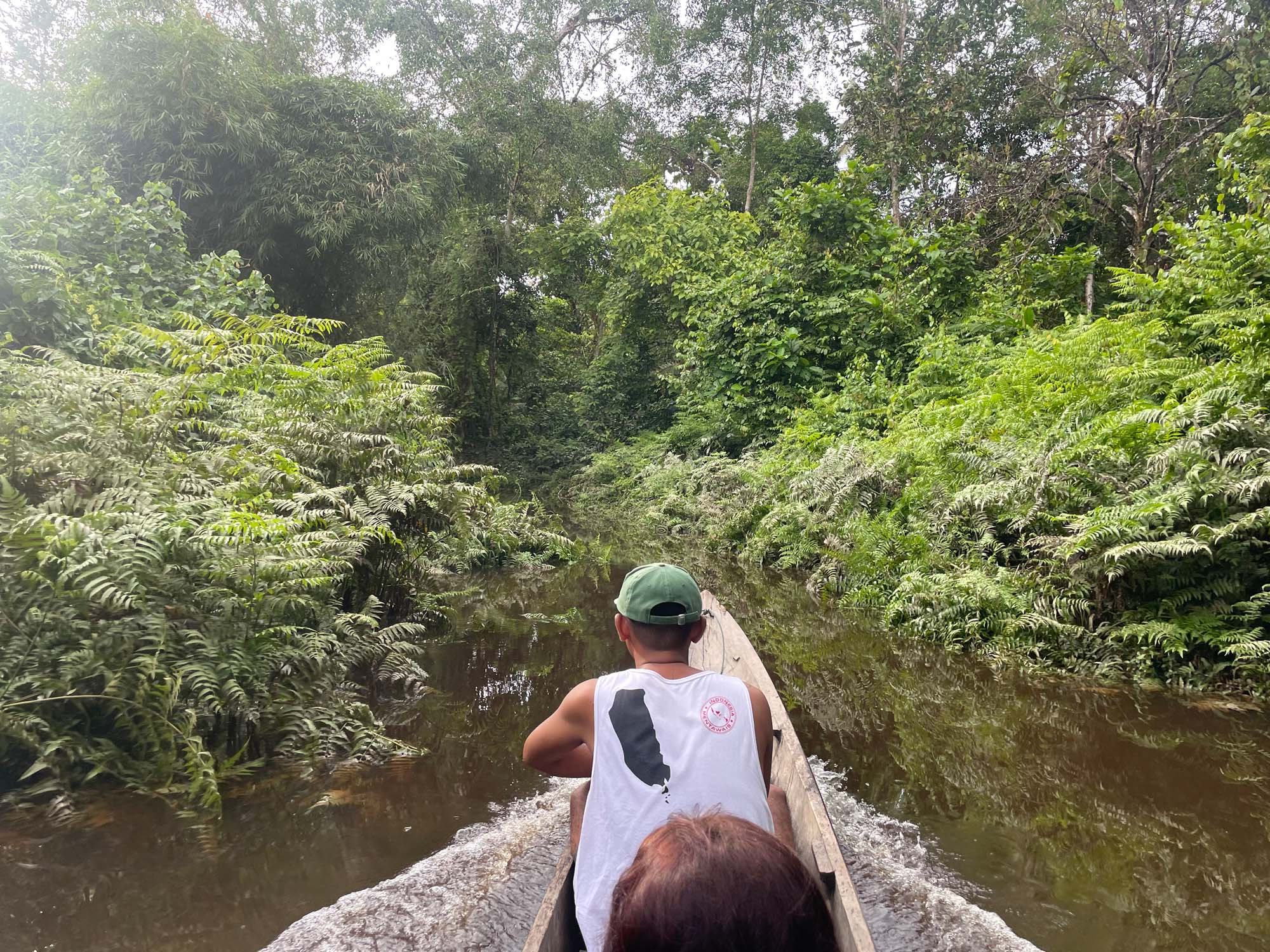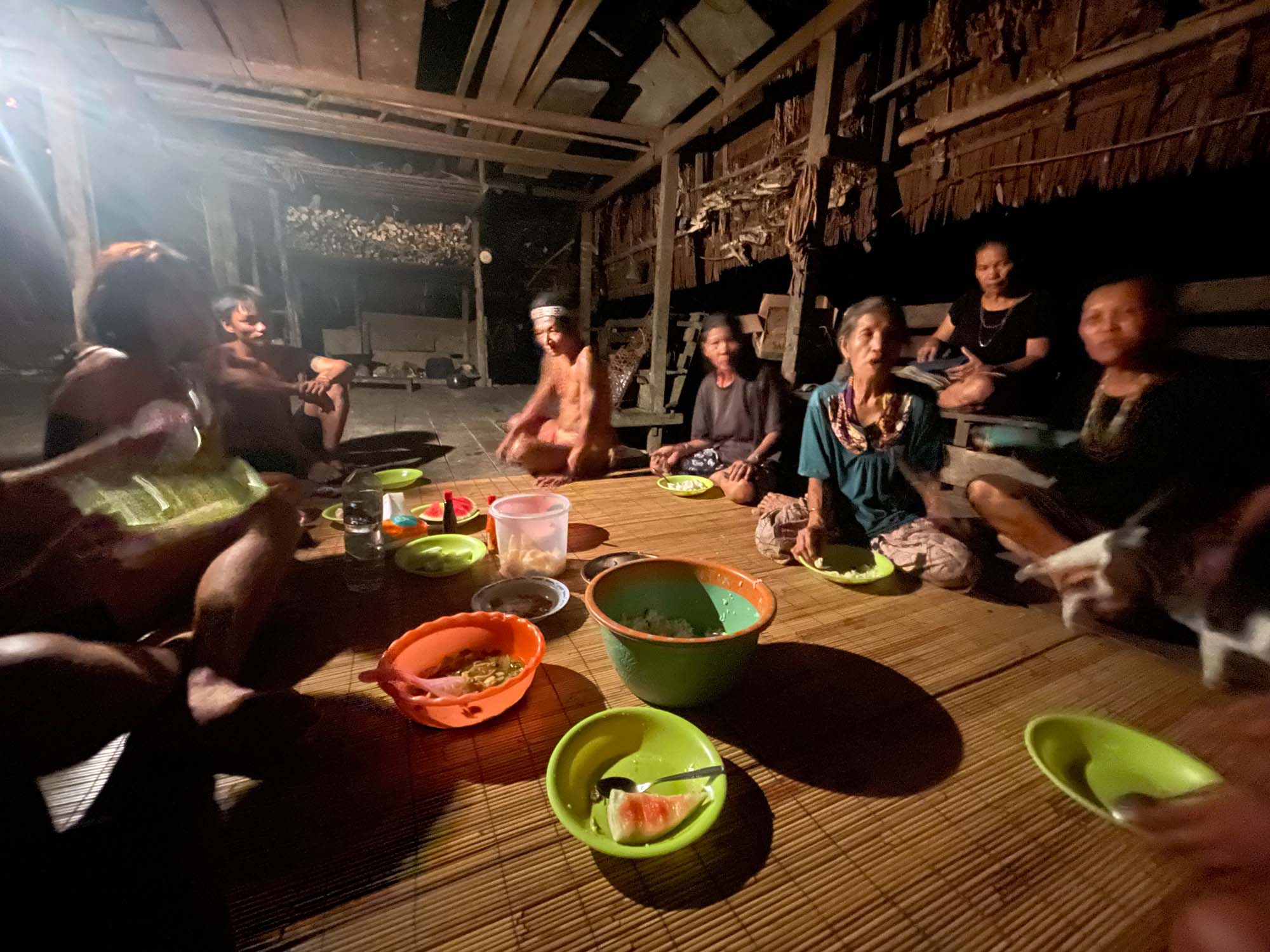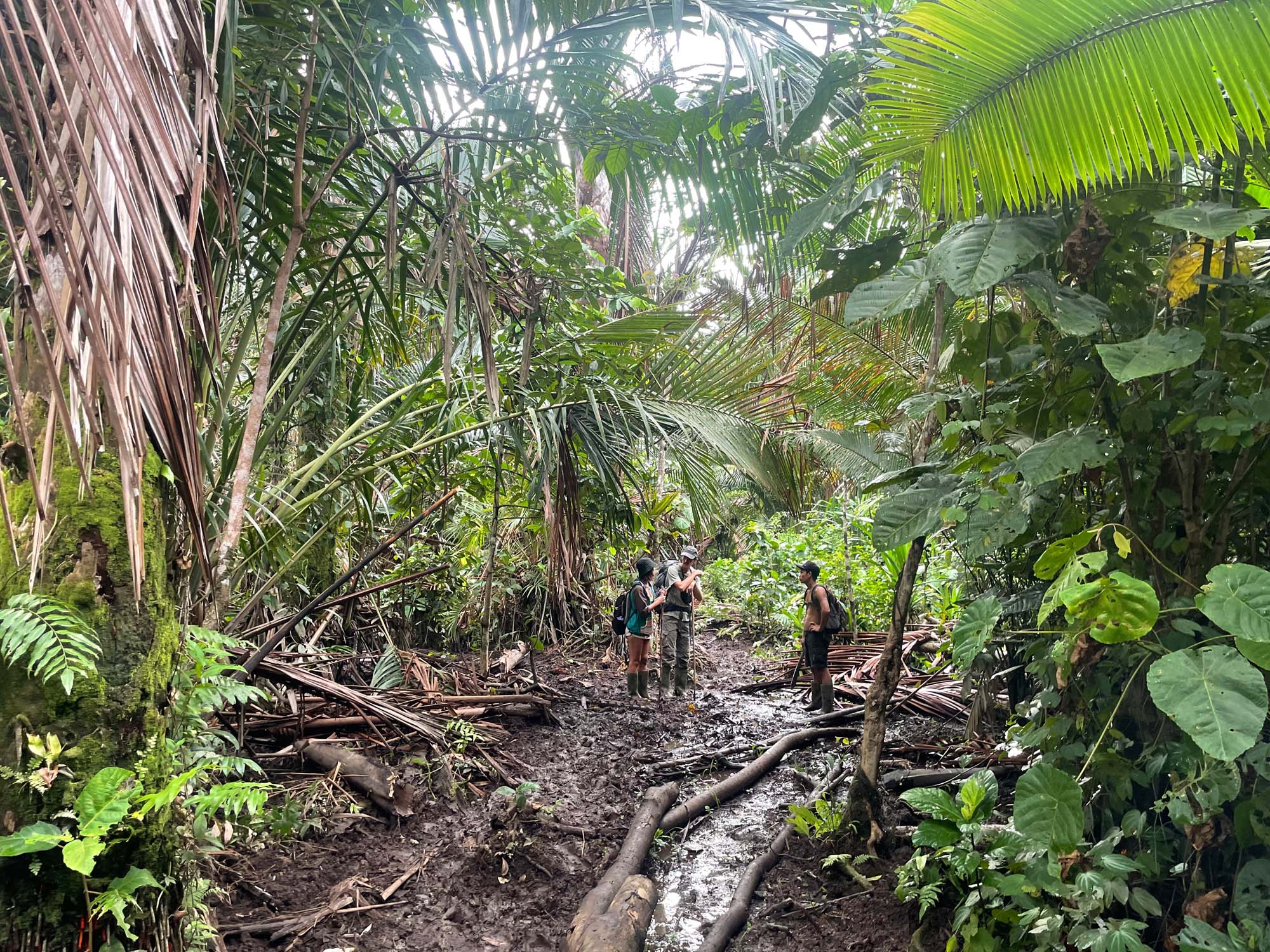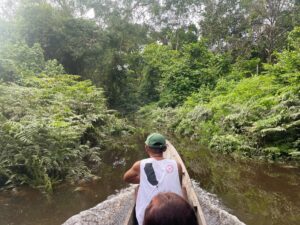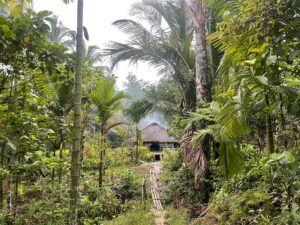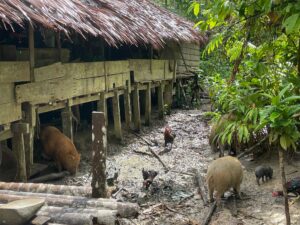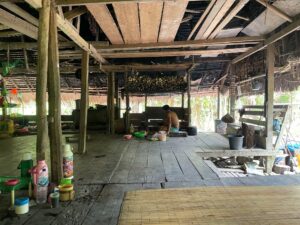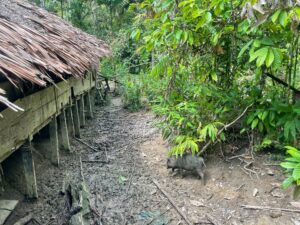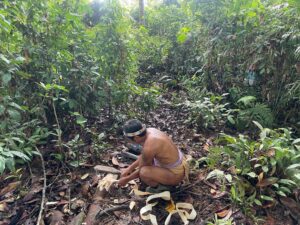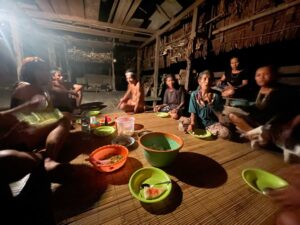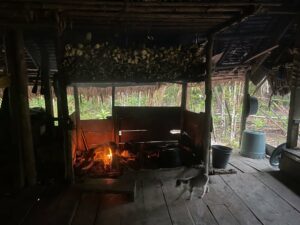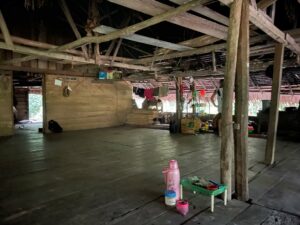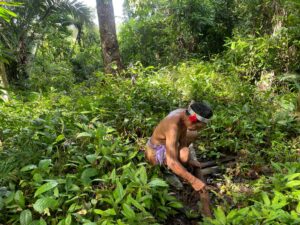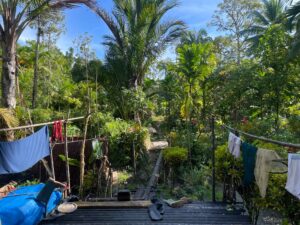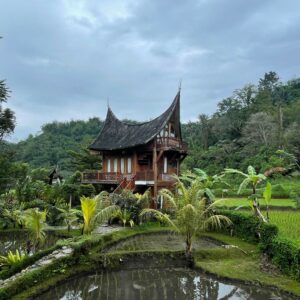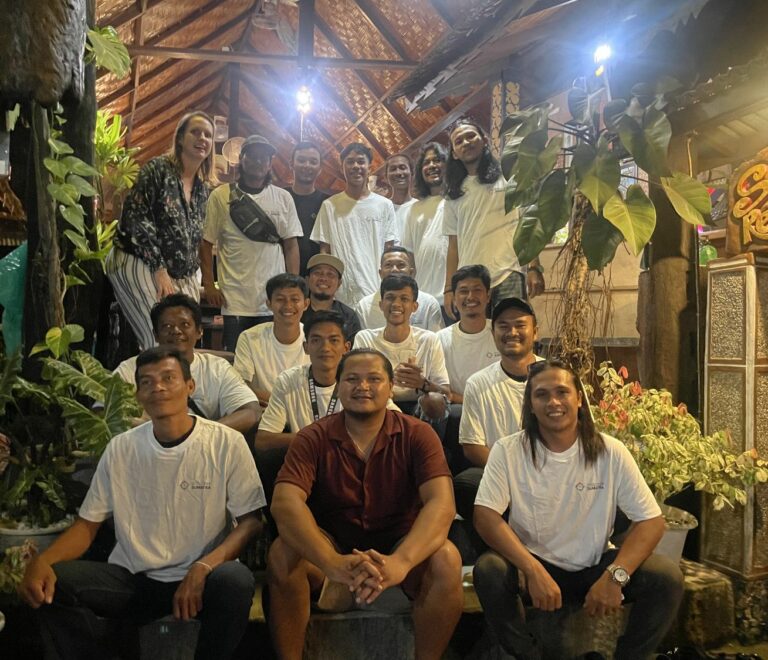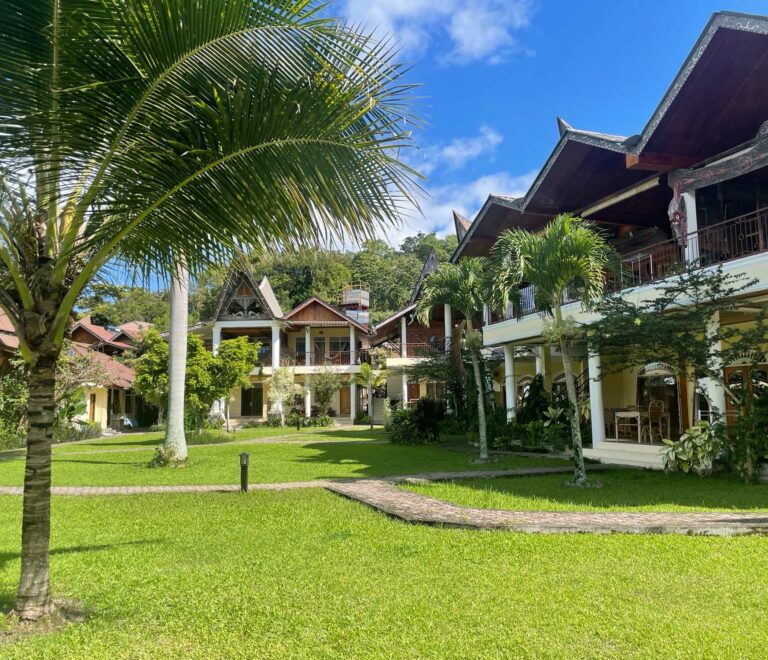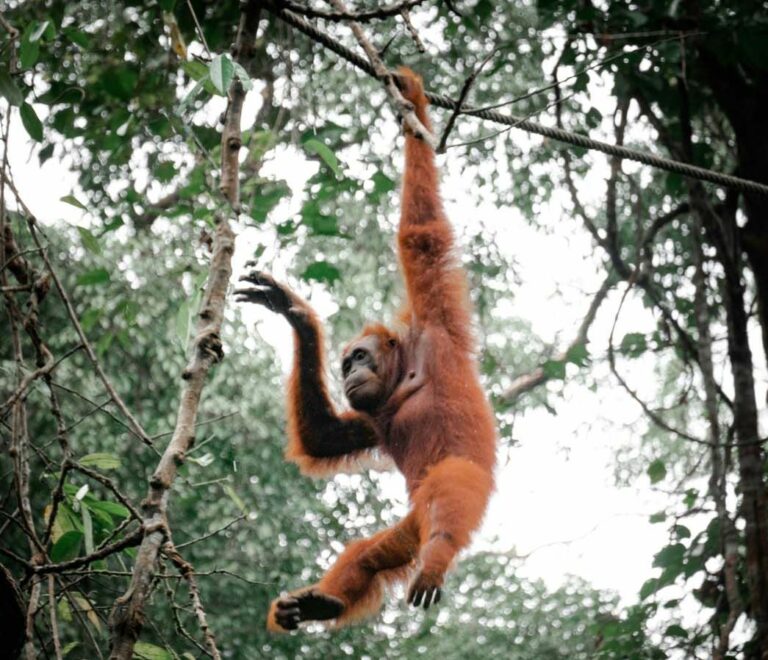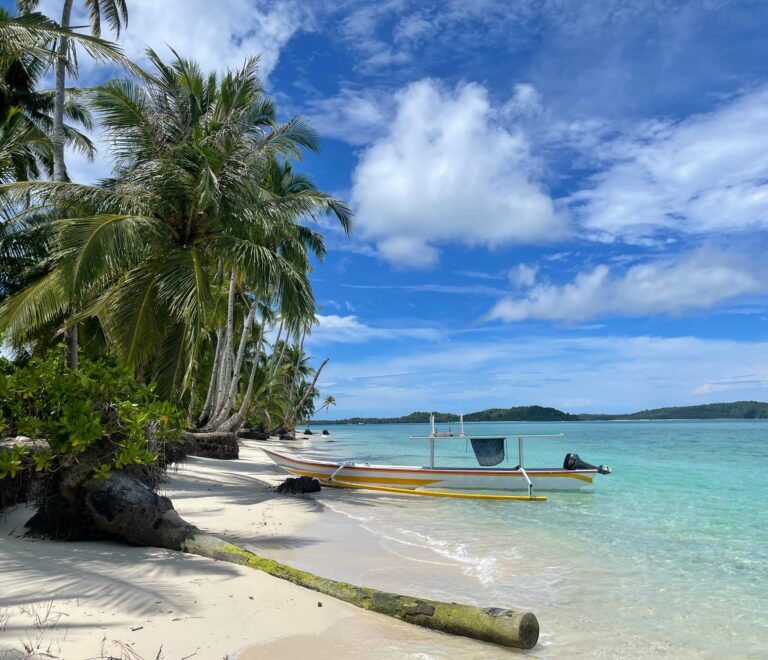The Mentawai tribe, residing in the remote Mentawai Islands off the western coast of Sumatra, Indonesia, is a fascinating indigenous community with a rich cultural heritage that has endured for centuries. The Mentawai people are renowned for their unique way of life, distinct customs, and deep connection with nature.
Visiting the Mentawai tribes
ToggleAbout the Mentawai culture
Central to Mentawai society is their spiritual belief system, which revolves around the concept of Sikerei, traditional shamans who act as spiritual guides and healers. The Mentawai people believe in a harmonious relationship between humans and the supernatural world, emphasizing the interconnectedness of all living things. Rituals, ceremonies, and tattooing play crucial roles in their spiritual practices, symbolizing transitions and connections with the spiritual realm.
Another notable aspect of Mentawai culture is their unique architecture. Traditional Mentawai houses, known as “Uma”, are raised on stilts and built from bamboo, wood, and thatch. These structures are not only practical for the island’s tropical climate but also serve as communal spaces, fostering a strong sense of community within the tribe.
The Mentawai people have also gained recognition for their distinct body art, particularly tattooing. Tattoos are not only aesthetic but also hold cultural significance, representing milestones in a person’s life, such as adolescence, marriage, or achievements within the community. The intricate designs are a source of pride and identity for the Mentawai people.
In recent years, however, the traditional lifestyle of the Mentawai tribe has faced challenges due to external influences, such as deforestation, modernization, and government policies. Efforts are being made by local and international organizations to promote cultural preservation, sustainable development, and environmental conservation to ensure the survival of the Mentawai culture and the well-being of its people.
Where are the Mentawai Islands?
The Mentawai Islands, consisting of Siberut, Sipura, North Pagai, and South Pagai, are located off the coast of West Sumatra. They are characterized by lush rainforests, pristine beaches, and a diverse ecosystem. The Mentawai tribe predominantly inhabits Siberut, the largest island in the archipelago. The isolation of these islands has contributed to the preservation of the Mentawai culture, allowing it to remain relatively untouched by external influences.
You are currently viewing a placeholder content from Google Maps. To access the actual content, click the button below. Please note that doing so will share data with third-party providers.
How to get there?
Getting to the Mentawai island in West Sumatra requires a bit of research and planning ahead. The ferries to the Mentawai islands don’t go every day and can get cancelled du to high waves or bad weather. So it is best to check the Instagram profil of the ferry company and to be a bit flexible with dates.
- You have to get to Padang. The city has an airport with connections within Indonesia (Medan, Jakarta, Surabaya) or internationally to Singapore or Kuala Lumpur. If you are already on Sumatra you can also catch a bus from Parapat (Lake Toba), Bukittinggi or Pekanbaru.
- Stay overnight in Padang. Recommended hotels are Santika, Ibis or d’Oxville.
- Take the Mentawai Fast ferry to Siberut. As we checked in Feb 24 they go on Tuesday (7 hours), Thursday (4 hours) and Saturday (7 hours). There are 2 harbours on Siberut island: Sikabaluan and Siberut. You want to get off in Siberut.
What you should know
- You need to be flexible in time because the ferries can get cancelled or postponed anytime. So you must stay another night in Padang after returning from the island. So this is a minimum 5 day trip. Shorter is not possible as ferries only go Tue, Thu and Sat.
- You must be prepared for basic standard and discomfort. You will sleep in a traditional Uma on the floor with a moskito net. The house is half open. Usually, there is no toilet (you can do your business in a small stream). Sometimes there is a kind of local bathroom with water from a well, sometimes you can only wash yourself in the small stream.
- This is not a staged experience. So there won’t be any traditional dances or practices shown only for tourists. You will accompany the Mentawai family on their day to day duties and activities.
- You need to be physically fit. In order to get to the family, you first take a small wooden boat and then you have to trek along a very muddy and slippery path.
What to bring
- small backpack
- change of clothes
- Pullover or cardigan (it can get chilly at night)
- raincoat
- swimwear
- towel
- toilet paper
- medicine and personal hygiene products
- waterproof bag (if available)
- moskito repellent
- torch
- sandals/ flip flops (to walk around the uma)
- thin blanket or sarong
Keep your luggage as light as possible. Food and supplies are carried by the guides. You can hire wellies.
Visiting the Mentawai tribes
Embarking on a journey to the Mentawai Islands, specifically Siberut, offers a rare opportunity to immerse oneself in the ancient and captivating culture of the Mentawai tribe. Spending three days with these indigenous people provides a glimpse into a way of life that has remained remarkably unchanged for centuries. Be prepared for stepping out of your comfort zone and basic standards for the next 3 days.
Upon arriving on Siberut, you will be picked up by your guide. You will have the opportunity to change clothes, get rubber boots and pack everything you need in your small backpack. Your main luggage will be stored securely during your time in the jungle. You will buy some logistics, food and presents for the tribe in a local shop. You can also get moskito repellent or a plastic rain coat if needed.
Afterwards you will take a motorised wooden boat into the jungle for about 1-2h, depending which family you will visit. Followed by another 1-2h trek through the dense jungle and through the muddiest of muddy paths you may have ever seen. Rubber boots for the win. This provides a taste of the remoteness that has helped preserve their unique lifestyle.
The hospitality of the Mentawai people is warm and genuine, so you will be greeted warmly upon arrival in their house. As a visitor, you have the chance to stay in a traditional Uma, the raised bamboo and thatch houses that are central to Mentawai community life. These communal dwellings are not only a place to sleep but also serve as the heart of social interaction. Everything happens here from cooking, eating to family gatherings.
You will sleep on a thick blanket on the wooden floor of the Uma, protected by a moskito net. The guides will cook 3 delicious meals for you every day.
Conditions of comfort and cleanliness are more than basic but far from being guaranteed for “western standards”. In this case, it’s very important and necessary to be able to tolerate this short inconvenience, to be able to enjoy your full stay and overall experience.
The daily life
When you stay with a Mentawai tribe you will be treated as part of the family. There is no special programme for tourists happening. The daily life of the Mentawai people is deeply intertwined with nature, and visitors may find themselves participating in various activities, such as traditional hunting and fishing expeditions or foraging for local herbs and plants. Engaging in these activities provides not only an authentic experience but also a chance to witness the tribe’s profound respect for the environment and their sustainable practices.
One of the highlights of the visit is undoubtedly the opportunity to witness the Mentawai’s spiritual ceremonies led by the Sikerei, the tribe’s revered shamans. These ceremonies often involve mesmerizing dances, rhythmic chants, and the application of traditional tattoos. The spiritual rituals offer insight into the tribe’s belief system, emphasizing the interconnectedness between the physical and spiritual realms. However, these events happen rarely and often on short notice. So you might be lucky or not.
Over the course of three days, visitors may become part of the Mentawai community, sharing meals, stories, and laughter with the locals. The Mentawai people are known for their intricate and symbolic body art, and some visitors may even choose to partake in the ancient tradition of receiving a traditional Mentawai tattoo as a lasting souvenir of their time with the tribe.
While the experience is undoubtedly enriching, it’s important for visitors to approach the Mentawai tribe with respect and cultural sensitivity. Sustainable tourism practices that contribute positively to the local community are encouraged, ensuring that the unique heritage of the Mentawai people is preserved for generations to come.
Is it exploitation to visit the Mentawai tribes?
We understand that visiting Indigenous communities can raise questions about authenticity and exploitation. This is an important and valid concern. During the trip, guests are mainly accompanying a Mentawai family in their everyday life—whether it’s going to the forest, preparing food, or spending time at the Uma. There are no staged dances, rituals, or performances created for tourists. The experience is not designed to “entertain” but to offer genuine insight into a way of life that continues despite many external pressures. Everyone must decide for themselves what feels ethically right, but we aim to approach these visits with respect, sensitivity, and care for the community’s autonomy and dignity.
Impressions
Conclusion
Leaving the Mentawai Islands after three days of cultural immersion is likely to leave a lasting impact, fostering a deep appreciation for the resilience, wisdom, and warmth of this remarkable indigenous community. The memories of shared moments, cultural exchanges, and the natural beauty of Siberut will undoubtedly linger, creating a connection that transcends the boundaries of time and place.
Are you interested in visiting the Mentawai tribes? Contact us!

